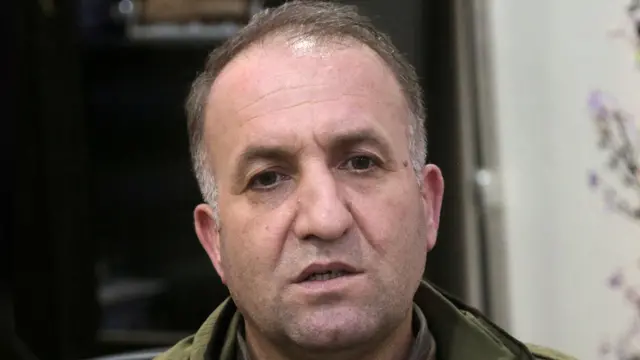Kurdish-led authorities in northeastern Syria are in talks with their military allies in a U.S.-led coalition over a promised exemption from U.S. sanctions targeting the Syrian government, a senior Kurdish official said.
Washington says the sanctions, which took effect last week, mark the start of a sustained campaign of economic and political pressure on President Bashar al-Assad to stop the war and agree to a political solution.
Northeastern Syria is controlled by Kurdish-led militia who have helped the U.S.-led coalition fight ISIL, driving the jihadists out of swathes of Syrian territory.
Badran Jia Kurd, a vice president of the regional administration, said the sanctions would have an impact on his area which trades with government-held Syria via local merchants and uses the Syrian pound, which has plunged in value.
"They will lead to increase in prices to a very great degree and to weakness in trade activity with the Syrian interior, while on the other hand crossings to Iraq are closed, meaning the region was already living an economic siege," Jia Kurd said.
"They told us the self-administration regions will be exempt from the Caesar sanctions but the mechanisms and means to achieve this exemption are being discussed with the international coalition."
The U.S. has granted sanctions waivers to its weaker allies in the consideration of not letting the effects of sanctions spill over to them. Iraq, for example, has been receiving sanctions exemptions from the U.S. so that the war-ravaged country, which heavily relies on electricity supply from Iran, can continue purchasing it from its neighbor without being subject to the sanctions on Iran.
The sanctions are named after a Syrian military photographer who smuggled thousands of photos out of Syria showing mass killings, torture and other crimes.
"We hope there will be international support for our regions given that they are fighting a continuing war against global terrorism," Jia Kurd wrote.
The sanctions on Syria penalize 39 companies and individuals, including Assad and his wife Asma, whom along with her family Secretary of State Mike Pompeo described as "one of Syria's most notorious war profiteers." The new sanctions also allow for the freezing of assets of anyone dealing with Syria, regardless of nationality.
The coalition has said the sanctions do not impede humanitarian assistance or hinder "coalition stabilization activities in northeast Syria."
The fresh round of sanctions the United States imposed are the toughest ever targeting President Assad, and they aim to choke off revenue for his government in a bid to force it back to United Nations-led negotiations and broker an end to the country's decade-long war.
The imposition of the sanctions has drawn condemnation from Iran and the Iran-backed Hezbollah. Both said the U.S. sanctions were cruel and that these measures would exacerbate suffering in the war-torn country.
(CGTN)
 简体中文
简体中文

